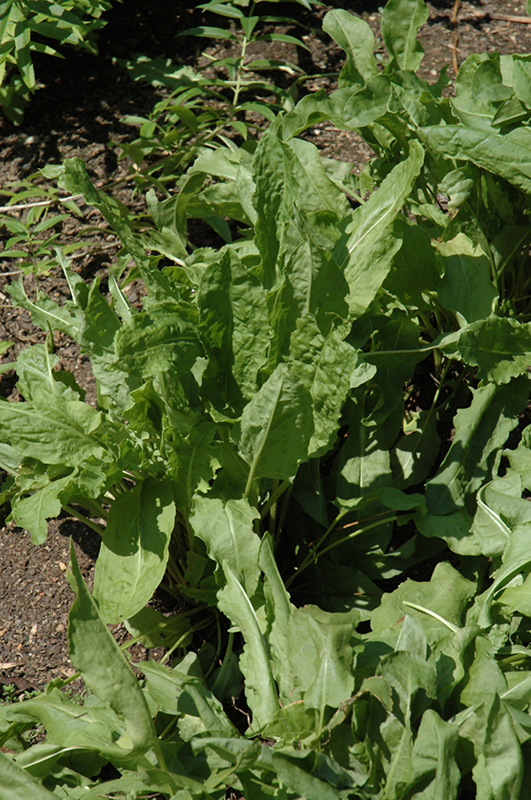Plant Height: 10 inches Flower Height: 16 inches Spacing: 12 inches
Sunlight:
Hardiness Zone: 5a Other Names: Buckler-Leaved Sorrel, Lemon in a Leaf, Sour Dock Description: This variety is primarily grown for its culinary value; leaves have a tangy, acidic, sour lemon flavor; young leaves are mild in flavor, intensifying with age; used in salads and cooking; self-seeds and can be aggressive, remove spent flowers Edible Qualities French Sorrel is a perennial herb that is commonly grown for its edible qualities, although it does have ornamental merits as well. The crinkled oval green leaves are usually harvested from early to late summer. The leaves have a tangy taste and a crisp texture. The leaves are most often used in the following ways: Features & Attributes French Sorrel has masses of beautiful spikes of dark red round flowers with light green eyes rising above the foliage in early summer, which are most effective when planted in groupings. Its attractive crinkled oval leaves remain green in color throughout the season. This is an herbaceous perennial herb with a mounded form. Its medium texture blends into the garden, but can always be balanced by a couple of finer or coarser plants for an effective composition. This is a relatively low maintenance plant. Trim off the flower heads after they fade and die to encourage more blooms late into the season. Deer don't particularly care for this plant and will usually leave it alone in favor of tastier treats. Gardeners should be aware of the following characteristic(s) that may warrant special consideration; Aside from its primary use as an edible, French Sorrel is sutiable for the following landscape applications; Planting & Growing French Sorrel will grow to be about 10 inches tall at maturity extending to 16 inches tall with the flowers, with a spread of 18 inches. When grown in masses or used as a bedding plant, individual plants should be spaced approximately 12 inches apart. It grows at a fast rate, and under ideal conditions can be expected to live for approximately 5 years. As an herbaceous perennial, this plant will usually die back to the crown each winter, and will regrow from the base each spring. Be careful not to disturb the crown in late winter when it may not be readily seen! This plant can be integrated into a landscape or flower garden by creative gardeners, but is usually grown in a designated herb garden. It does best in full sun to partial shade. It prefers to grow in average to moist conditions, and shouldn't be allowed to dry out. It is not particular as to soil type or pH. It is somewhat tolerant of urban pollution. This species is not originally from North America. It can be propagated by division. French Sorrel is a good choice for the edible garden, but it is also well-suited for use in outdoor pots and containers. It is often used as a 'filler' in the 'spiller-thriller-filler' container combination, providing a mass of flowers and foliage against which the thriller plants stand out. Note that when growing plants in outdoor containers and baskets, they may require more frequent waterings than they would in the yard or garden.
A NetPS Plant Finder tool![]()
![]()
![]()
![]()
![]()
![]()
![]()
![]()
![]()
![]()

